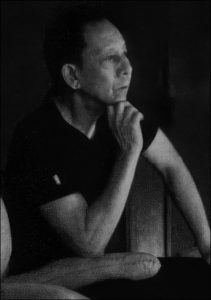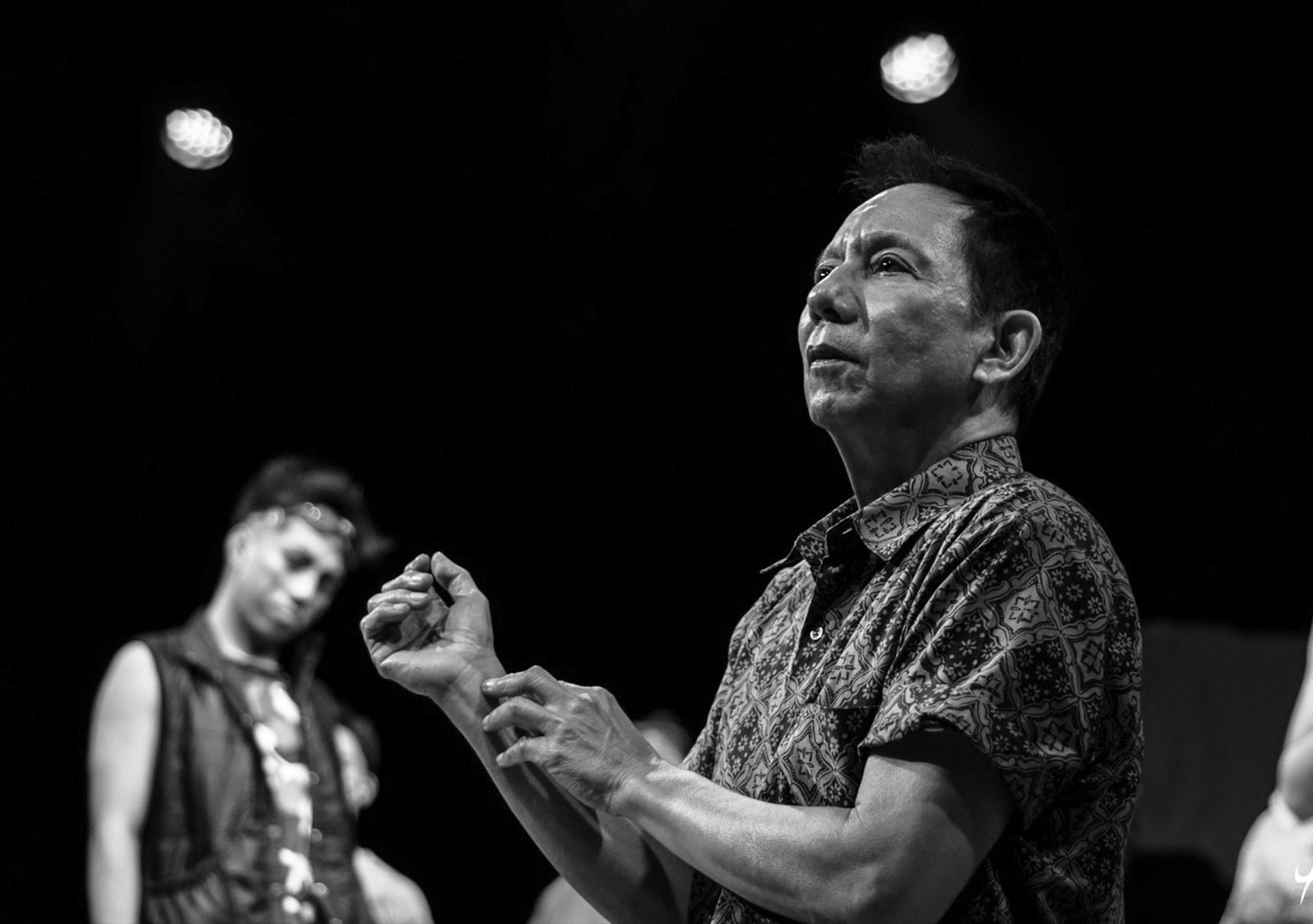Theater for Change
 Sociology underpinned Ricky Abad’s theater life, and this gave strength to his creative work. Ricky staged Sintang Dalisay not merely to showcase a piece of intercultural theater. It was, at bottom, an opportunity to get Christian and Muslim artists to work together on a common project – in effect, to use the power of the theater to build dialogue between two groups that have misunderstood each other for centuries. By and large, Ricky Abad’s theater was a stage of social awareness. The themes of many of his plays were colonial and neo-colonial oppression — the ruthlessness of foreign presence on local ways of life, the heartlessness of dictatorships — and the resistance of the oppressed.
Sociology underpinned Ricky Abad’s theater life, and this gave strength to his creative work. Ricky staged Sintang Dalisay not merely to showcase a piece of intercultural theater. It was, at bottom, an opportunity to get Christian and Muslim artists to work together on a common project – in effect, to use the power of the theater to build dialogue between two groups that have misunderstood each other for centuries. By and large, Ricky Abad’s theater was a stage of social awareness. The themes of many of his plays were colonial and neo-colonial oppression — the ruthlessness of foreign presence on local ways of life, the heartlessness of dictatorships — and the resistance of the oppressed.
The theme of social inequality pervaded his sociological work, a theme that united Ricky’s work in sociology and theater. While he wrote many articles and essays, a significant portion of his research work dealt with social inequality, and in particular the observation that much of the social inequality in the Philippines can be understood as the extremely uneven possession and access to social, cultural, and symbolic capital among its citizens.

His classic work on “Aspects of Social Capital in the Philippines” (2005) published in the Philippine Sociological Review was a pioneering effort and one which was frequently downloaded in the Philippine Sociological Society website, widely cited in other scholarly works, and served as a guide to many graduate students doing their theses and dissertations in the Ateneo and elsewhere. This quantitative work on social capital – including those on religion, migration, and citizenship – emerged first, from his affiliation with the SWS and earlier, with the East-West Population Institute at the University of Hawaii and second, from his engagement in the theater.
 An immersion in the theater, even during school breaks and sabbatical leaves, left little time for immersion in the field for qualitative social research. But in 2013 he was named Senior Fellow of the Asian Public Intellectuals Fellowship and was able to do a field study on theater and nation in Malaysia. He wrote an article based on this work documenting the way a local performing arts company mobilized theater, or more specifically cultural and symbolic capital, to challenge state policies. This Malaysian work built on Ricky’s earlier research on intercultural theater where he found that while the assertion of local cultural capital by the Sama Bajau gave local performing artists a measure of social capital to network with non-Muslim groups, it also provoked issues of representation from a conservative Muslim group, thus underscoring the politics of cosmopolitanism in creating intercultural theater.This prompted him to write about the ethics of such intercultural encounters.
An immersion in the theater, even during school breaks and sabbatical leaves, left little time for immersion in the field for qualitative social research. But in 2013 he was named Senior Fellow of the Asian Public Intellectuals Fellowship and was able to do a field study on theater and nation in Malaysia. He wrote an article based on this work documenting the way a local performing arts company mobilized theater, or more specifically cultural and symbolic capital, to challenge state policies. This Malaysian work built on Ricky’s earlier research on intercultural theater where he found that while the assertion of local cultural capital by the Sama Bajau gave local performing artists a measure of social capital to network with non-Muslim groups, it also provoked issues of representation from a conservative Muslim group, thus underscoring the politics of cosmopolitanism in creating intercultural theater.This prompted him to write about the ethics of such intercultural encounters.